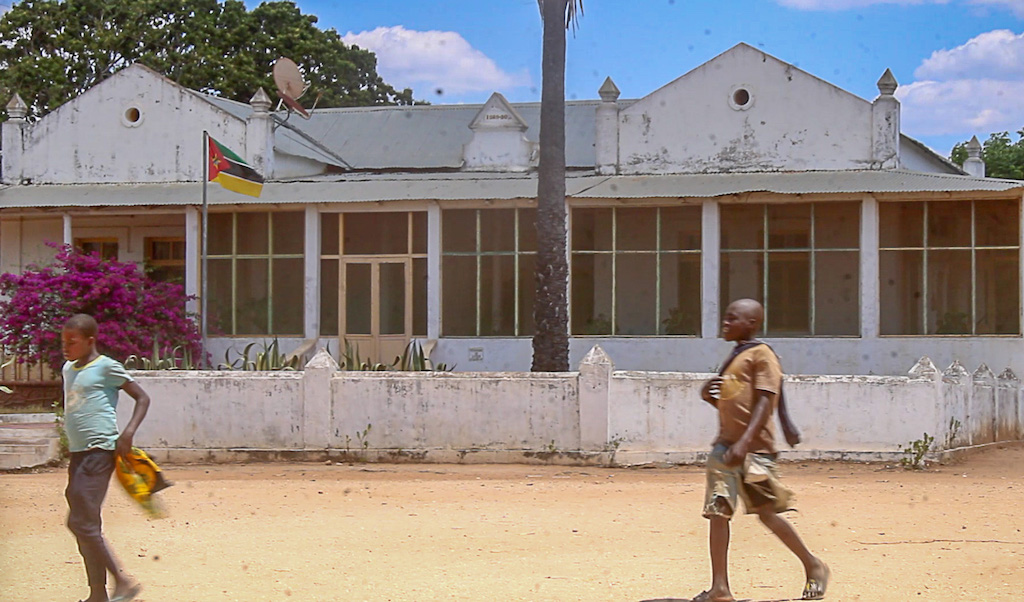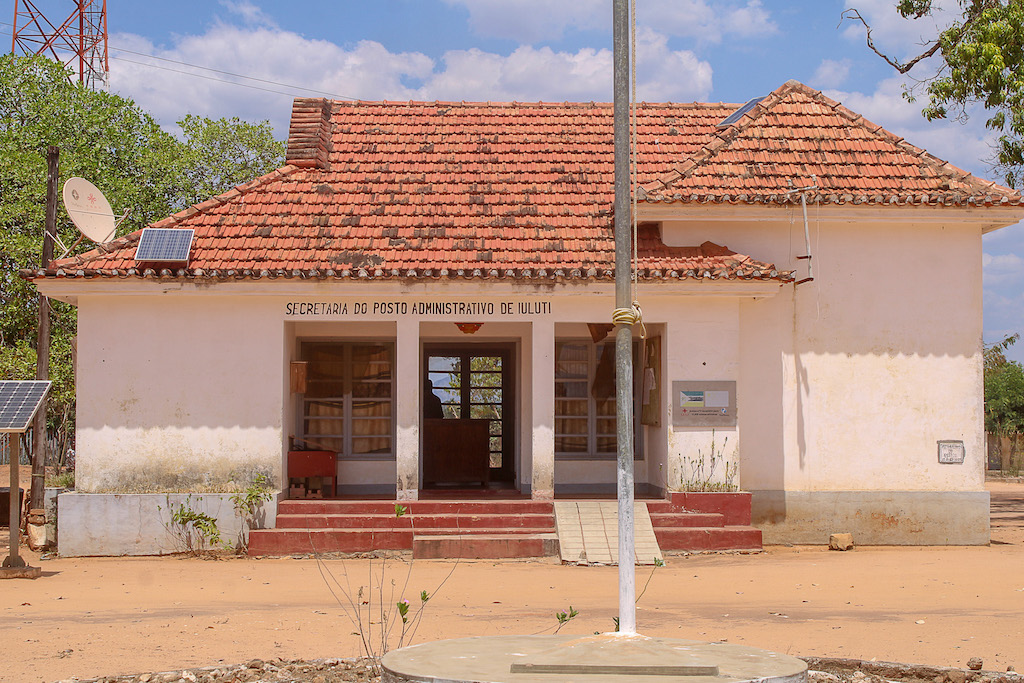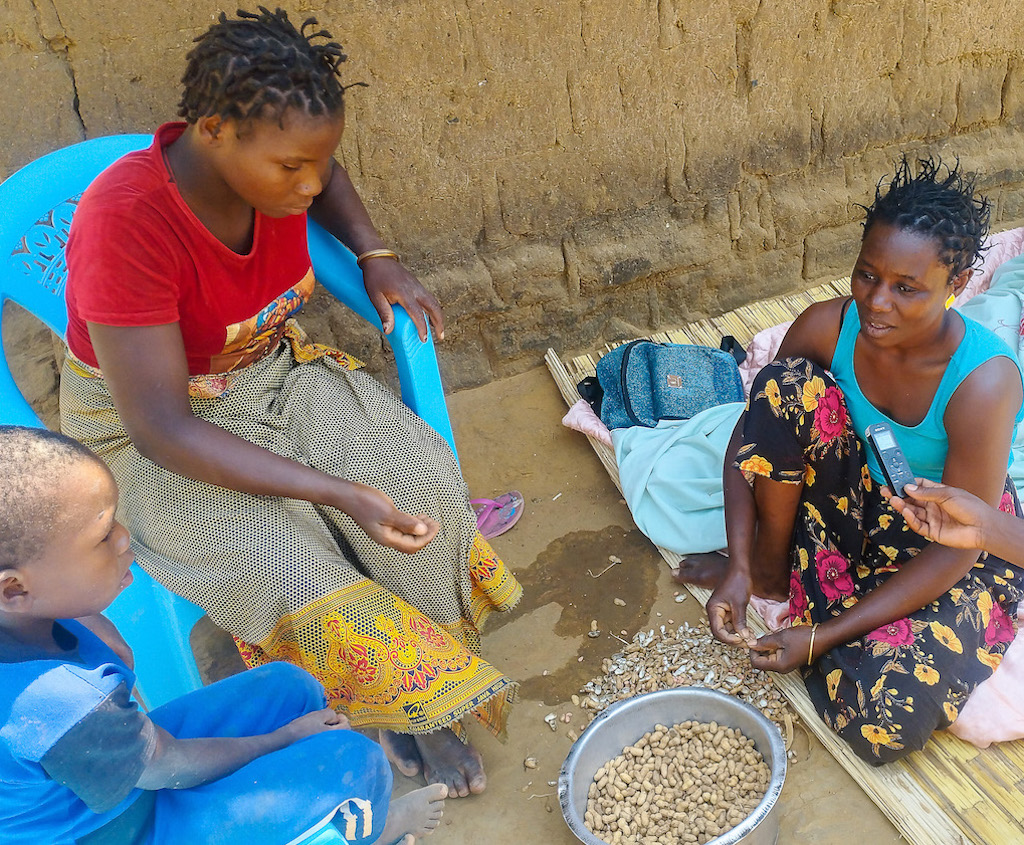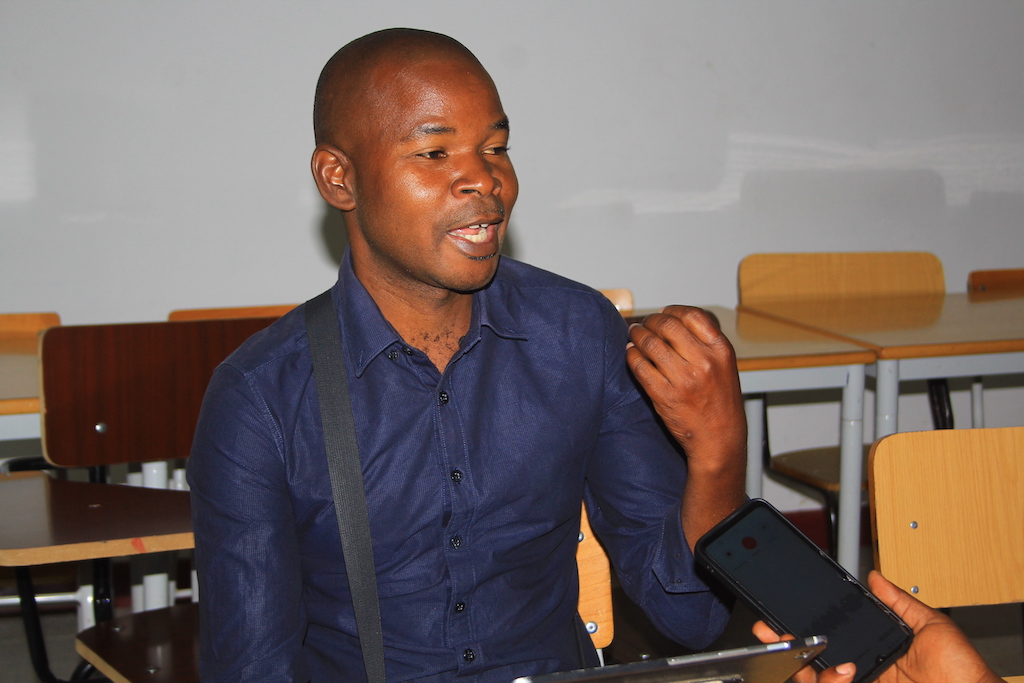
10 Oct Nampula far from renewable energy goals
Investors are keen to support solar power in Northern Mozambique, but development on the ground is slow to take off. Amade Abubacar investigates why

Iuluti is an administrative post in Mogovolas district in Nampula, one of the 14 administrative divisions in the province that are not connected to electricity. Photo: Amade Abubacar
Several announcements promising millions of dollars and euros have been made since 2019 for investment in renewable energy in Mozambique, particularly in the northern province of Nampula, where electricity coverage remains low.
Nampula is the most populous province in the Southern African country, with an estimated population of close to 6,5-million inhabitants, corresponding to 20.5% of the Mozambican population. This density means that people looking for a means of living place huge pressures on natural resources and the environment in a space where investments in renewable energy are scarce.
Nampula and other parts of the north, such as Tete, Cabo Delgado and Niassa, have consistently high temperatures and sun radiation suitable for solar power, a study carried out between 2011 and 2013 by the Ministry of Mineral Resources and Energy, through the Energy Fund, and published in Atlas de Energias Renováveis de Moçambique, shows.
In 2022 a survey on the impact of access to sustainable energy produced by the National Institute of Statistics points out that, of the families that have access to electricity, almost 20% are guaranteed it with solar panels.
Promised investments in the region include US$82-million for electrification projects from an initiative titled ProEnergia involving the World Bank and the Mozambican government.
In October 2022 the African Development Bank approved a budget of US$2.5-million for the government to develop the Renewable Energy Integration Programme. According to the director of renewable energy and energy efficiency at the bank, Daniel Schroth, “the fund must build more sustainable energy generation infrastructures that are resilient to climate change”.
And on December 7 2022 the European Union, through ambassador António Maggiore, announced during a renewable energy business conference in Maputo that €15-million was available for renewable energy investment through a programme called PROMOVA Energia, an initiative to be implemented in rural areas in the provinces of Nampula and Zambézia.
However, investigation of initiatives implemented by the provincial government of Nampula to expand the use of renewable energy over the past five years indicate little has been done. Research into public speeches from Nampula revealed no statements from any main political office holders talking about renewable energy or solar panels. And the municipal council has not received funds for renewable energy, much less attempted to plan or incorporate it into its activities.
National Energy Fund
The National Energy Fund (FUNAE) is Mozambique’s implementation agency for off-grid and rural electrification affairs. According to the energypedia.info website, only 580 schools and 561 health centres in 260 communities across the country were electrified since its creation in 1997.
FUNAE’s representative in Nampula, Izildo Nogueira, said investments are managed by the central government in Maputo. He was unable to say how much of the promised investments have been received, but explained that FUNAE manages them with the Bank BCI.
“At this moment I am not in a position to present the figures, because this is a fund that is being managed at the central level,” Nogueira said. “At the provincial level, we only have a duty to receive companies and respond to their concerns.”
“Most of the renewable energy projects that FUNAE implements are projects financed by cooperation partners, many of which are from the European community… These partners are directly supporting the projects in terms of the electrification strategy shared between the Mozambican Electricity Company and FUNAE,” he added.

Private investors are stepping in to provide services to administrative offices and other customers in rural areas. Photo: Amade Abubacar
Private investment
Due to the limited electrical energy available from the public network in the north, private companies are stepping in to provide services, often at a cost to poor populations living in rural areas.
The main Nampula-based companies are MySol Moçambique, Sun King and Solar Power Ltd. They provide access to kits made up of panels, batteries and lamps through payment in cash in full, or in installments ranging from 2,000 meticais (about R730) to close to 95,000 meticais (about R32,000). They also provide customers with a light bulb charged during the day that can be used for lighting at night, at the price of 20 meticais (about R7).
Solar Power is a Mozambican-financed company founded in 2022 by a Nampula citizen who studied physics at the local Rovuma University. Sun King is a foreign-owned company that operates in around 40 countries, including Mozambique, while Mysol has 38 service stations nationwide.
Erasmo Plica, chair of the board of directors of Solar Power, said his company has provided a solution for low energy costs for families in rural areas not covered by government intervention. His company set up photovoltaic panels, for example, to supply an irrigation pump in the district of Malema.
“The result is positive and in the first phase we hope to hear about problems during the process so that they can be solved immediately,” he said.
The private investors complain about a lack of incentive and financing opportunities from the government. Plica said there is no support for young graduates or companies interested in developing ideas in the renewable energy sector, and no funds available to micro, small and medium-sized enterprises wanting to put knowledge into practice, thus taking advantage of the vast potential that Nampula has in terms of renewable energy.
FUNAE’s Nogueira responded that a financing line was set up through the BCI bank in 2021. “Associations, individuals and legal entities can have access it,” he said.
“I invite everyone interested in investing in the area of renewable energy to approach BCI and find out about this fund. Many people have not yet applied, but the money is there to be used to make productive use in communities more flexible.”

Maria Francisco Ámido (right): ‘If only we had working solar panels, but there’s nothing.’ Photo: Amade Abubacar
Dilemma of the population
Iuluti is an administrative post in Mogovolas district in Nampula, one of the 14 administrative divisions in the province that are not connected to electricity. Here the solution of renewable energy usage, particularly solar panels, is far from being a reality.
Lúcia António (29), the mother of three children, said one of the biggest challenge is for pregnant women when they go to give birth at the local maternity ward. They have to use battery-powered hand torches that families must bring from home.
Carapio Alberto (39) recalled with emotion the memory of his mother’s death in 2021 on a bed in the maternity ward, due to lack of energy – without lighting the nurses could do nothing to help her.
“We don’t have energy at the health centre,” he said. “I lost my mother because when we arrived there she was pregnant, and she died because there were no components for electricity. In fact, we are suffering beacuse we have no energy, and we don’t understand why the government treats us like this.”
“The problem of lack of energy is a major concern and headache. Even when we go to the hospital, especially at night, we are forced to use a hand torch,” said Maria Francisco Ámido (37), mother of five children. “If only we had working solar panels, but there’s nothing.”
She also mentioned that the local fishing industry suffers due to lack of energy. “Our products often go rotten due to lack of refrigeration. With energy we would conserve them, the government should speed up this energy process for everyone.”

Erika Mendes: ‘We need energy solutions that, in addition to being clean, are on a smaller scale.’ Photo supplied
Calls from the experts
“Mozambique has enormous potential for clean and renewable energy, which gives us every reason not to repeat the dirty path of fossil fuels followed by so many other countries,” said Erika Mendes, from the Mozambican non-governmental organization Justiça Ambiental (JÁ).
“However, to really combat the context of energy poverty that we have in the country and move towards energy sovereignty, we need energy solutions that, in addition to being clean, are on a smaller scale, decentralised and managed locally, that take advantage of the energy potential of each location and benefit local populations.”
Mendes warned that the large-scale use of renewable energy can also be harmful, which is why her organisation defends the use of solar energy on a small scale that is not harmful to the environment.
“A large solar energy project, for example, needs a lot of land, a lot of area to produce that energy, so if that project is implemented in a place where people live, those people either have to benefit from the project or they have to be resettled, because otherwise we will repeat the same problems as with the coal mine and gas projects,” she said.
“For us the issue of energy transition should not just change energy to another type of energy. The changes have to happen in a deeper way. It is not enough to be solar energy, it has to be solar energy that is produced to benefit the community that is there, it has to be a solar energy project which will not mean that families will lose land to produce energy that will then go to industry or be exported.”

Professor Baltazar Raimundo said there is little use of the potential that Nampula has. Photo: Amade Abubacar
Oceanic energy
Professor Baltazar Raimundo at Rovuma University in Nampula is the chair of educational physics and renewable energy, with a degree in physics and a master’s degree in energy management. He said there is little use of the potential that Nampula has.
“We are rich in many forms of renewable energy, including oceanic energy. Unfortunately, we are unable to exploit these energies, and there are several reasons for this: the national policies themselves and the technical part also does not help us,” he said. “Practically oceanic energy involves a lot of costs in its exploration and in technological terms we are far behind, but it is never impossible if there is good will.”
Celestino João, professor and master in biology with interests in renewable energy, pointed to poor use of solid waste for the production of energy and other alternatives. For him, the widespread use of microorganisms would not only solve the problem of environmental pollution, but also biogas that would be useful for kitchens and biofertilisers.
João insisted that the implementation of good waste management would reduce social pressure on coal and firewood, and thus save the forests.
“It is very sad to see a truck loaded with firewood to supply a bakery, a barracks or a jail,” he said. “If there is the possibility of building a biomanager for these centres and from the waste they produce, energy will be produced that will feed the kitchens. It will support the cleaning of the environment, which means reducing the volume of solid waste, saving forests and the emergence of a new line for preparing food without needing firewood and charcoal.”
Amade Abubacar is a Mozambican journalist based in Cabo Delgado. This investigation was completed with the support of the Oxpeckers Investigative Environmental Journalism #PowerTracker project and the Centre for Investigative Journalism’s Open Climate Reporting Initiative.
